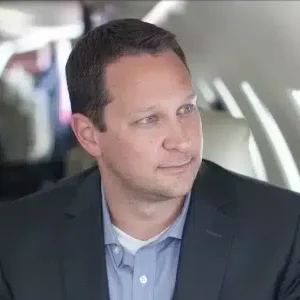Stratos Jets Analyzes Europe’s Move to Impose a Carbon Emissions Tax on Private Aviation
Recently, the private aviation industry has been up in arms over the European Union’s new carbon emissions tax on air travel to, from and in its collective borders, which is part of the European Union Emissions Trading Scheme (EU-ETS). EU-ETS imposes a heavy tax on carbon emissions for the duration of any flight landing or departing from Europe, regardless of destination. This tax program aims at reducing the carbon footprint of jet aircraft, but in reality could harm the air charter industry, while doing little to aid the environment.
Thus far, EU-ETS has been met with strong opposition from all four corners of the aviation industry, from airliners and air charter operators, to jet charter brokers, and government agencies. The U.S. House of Representatives recently signed a petition, formally announcing its opposition to EU-ETS. According to the Nation Business Aviation Association (NBAA), even President Obama has expressed his concern over the implementation of EU-ETS, and its possible impact on US-EU trade, although he has not specifically mentioned the House’s measures.
At Stratos Jet Charters, we feel that it is our responsibility as both an American business and industry service provider, to educate our clients about the tax program. We believe that government mandates on carbon emissions will have a net negative environmental impact because they would increase the cost of private aviation and in turn, shrink the pool of private jet flyers. This decreases the efficiency of the air charter market, while increasing the number of unoccupied flights in Europe. Our goal is to help spread awareness of the detrimental program, preventing a similar program from taking root on American soil.
If complied with by the U.S., the EU-ETS carbon emissions tax would increase the costs of private charter flights in and out of Europe, as air carriers would be forced to pass this tax on to their clients. Commercial airlines have already increased their airfare to account for the new tax. The problem is that air charter consumers would not be assured that their money was going to programs that directly benefited them or their environment. All funds collected by the carbon emission tax are speculative in their final destination and would become hostage to the political whims of the European Union.
EU-ETS proponents fail to understand the value that business aviation has, and its contributions as a driver of the U.S. economy. The convenience, services, and flexible scheduling of private aviation are tangible assets that all private jet flyers can directly benefit from. Private aviation contributes billions of dollars to the American economy each year. This number will only decrease if the cost of aviation is increased to the point that only a few can afford to benefit from it. To help improve our economy, our goal should be to expand access to private aviation. Mandating a tax on carbon emissions for U.S. air travel would only serve to put the benefits of private aviation further out of reach.
Over the past few years, technological advancements have made it possible for air charter agencies, such as Stratos Jets, to identify transient aircraft positioning throughout the U.S, and better communicate real-time availability. As a result, pricing has come down, and we have expanded access to the benefits of private aviation to a group of businesses who otherwise couldn’t afford it.
These free market factors have transformed the air charter marketplace by offering point to point pricing on most charter flights throughout the United States; lowering the cost of private aviation. This lower price point has enabled more clients to book one-way charter flights. As a result, the duration of unoccupied flights has decreased dramatically, improving the efficiency of each aircraft and minimizing the environmental impact of unoccupied aircraft repositioning.
In addition to net positive impact of improving the efficiency of the air charter marketplace, companies like Stratos Jets have pioneered Carbon Off-Set programs for private jet travel. Since 2007, Stratos Jets has offered our clients the opportunity to offset the carbon emissions of their private jet charter flight. This opt-in approach allows our clients to choose to be a good stewards of the environment, without forcing entry-level clients out of the market.
While proponents of an emissions tax have good intentions, it is unclear just what benefit a carbon emissions tax could bring. What is far more likely is that the number of unoccupied flights will rise, decreasing the efficiency of the charter market, and possibly expanding the demand for illegal charter flights on much less safe and environmentally-sound aircraft.
For all these reasons, Stratos Jet Charters opposes the carbon emission tax in Europe. As a staple of the Orlando-area economy, Stratos Jets has worked to increase awareness of and access to private aviation for individuals and business from different sectors of the economy.
We are proud to be an American small business and a member of the Air Charter Association of North America, the only industry-led organization to promote best practices and ethics. We believe that the greatest social and environmental safeguards are to be found in a free market and not in government-mandated taxes. We hope that air charter consumers will voice their displeasure to their lawmakers by contacting their local representative, who can be contacted through this website: .
Are you ready to book your New York and Washington DC charter flight yet?
Our friendly, expert air charter agents are here to answer questions or start your quote today. Don`t wait, call now and we'll get you on your way to your destination!
Call 888-593-9066











